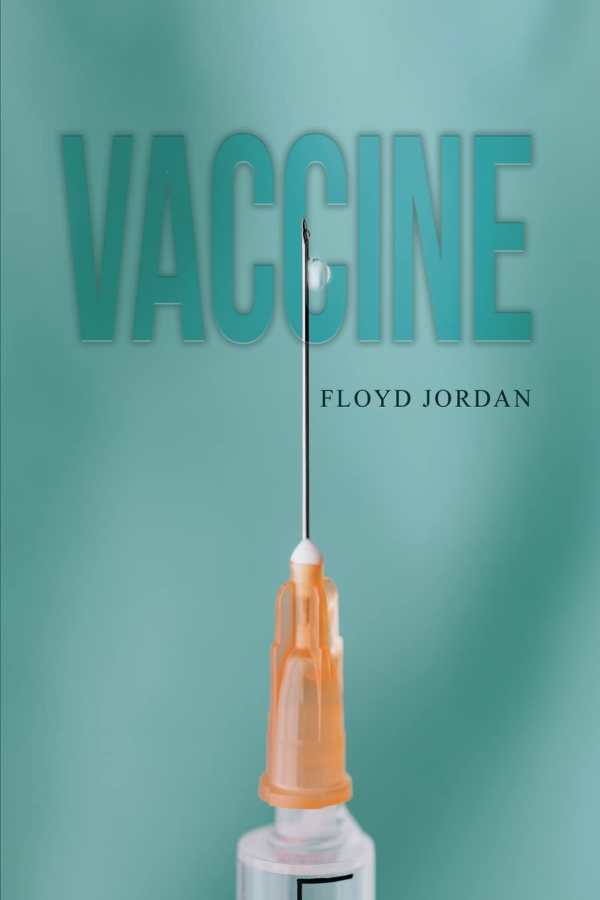Vaccine
In the contemporary thriller Vaccine, political interests and greed worsen a global health-care emergency.
In Floyd Jordan’s thriller Vaccine, there are consequences to rushing vaccination trials.
Aramis and his coworkers at the Miami Fire Department were vaccinated against COVID-19 as soon as they could be. But when one of the firefighters bleeds to death, Aramis begins to suspect that the trials were rushed to help President Miles’s reelection campaign. Soon, death by excessive bleeding becomes common—with white people as the only victims. As the fire department dwindles, Aramis faces a second threat: white supremacists who think that, as a Black man, he should not be in charge.
Beyond the department’s doors, the entire country is in crisis; helplessness takes over. When it becomes clear that they are safe, Aramis and other people of color contend with dueling feelings of grief and relief. But the book’s emotions, and even its thrills, are buried beneath its informative coverage of the fire department’s daily operations, including the logistical difficulties of losing half of the staff. Even the book’s alternate history is light: President Miles is a fictionalized version of Donald Trump, with some quotes taken verbatim from him. In the novel’s case, though, Republicans get the vaccine at the president’s urging, and Democrats mistrust its speed.
Aramis narrates most of the book. A kind man, he makes his choices with serving others in mind. He takes care to express his condolences to his lost teammates’ loved ones too, even as he plans to deal with the crisis at hand. But others are not fleshed out in such detail. Even Aramis’s wife Shyanne, who occupies a lot of page space, is not developed beyond her connection to Aramis and their adult children: she cooks for Aramis, has sex with him, and provides him and their children with emotional support, after which she fades into the background again. And because—here and elsewhere—people’s personalities are pronounced rather than displayed, emotional distance reigns.
Redundant synonyms and agreement issues also plague the prose, which zigzags between the past and present tenses. Further, people’s roles are reiterated with unnecessary frequency, and extraneous plot points obscure the main crisis, as with a minor character’s discovery that he has an adult daughter that he never knew about. Elsewhere, outdated, insensitive cultural terms are used to the book’s detriment. A major loose end makes the book’s conclusion unsatisfying as well.
In the contemporary thriller Vaccine, political interests and greed worsen a global health-care emergency.
Reviewed by
Carolina Ciucci
Disclosure: This article is not an endorsement, but a review. The publisher of this book provided free copies of the book and paid a small fee to have their book reviewed by a professional reviewer. Foreword Reviews and Clarion Reviews make no guarantee that the publisher will receive a positive review. Foreword Magazine, Inc. is disclosing this in accordance with the Federal Trade Commission’s 16 CFR, Part 255.

